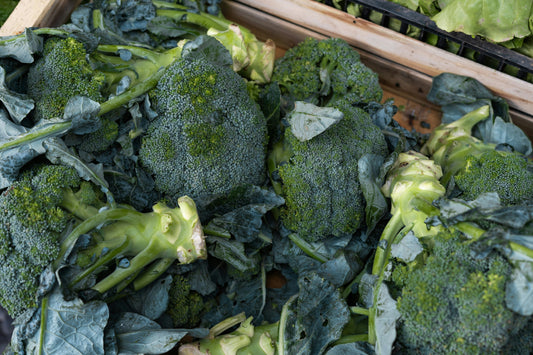I like to keep my fridge stocked up with healthy food, I rotate the types of fruit and vegetables I use depending on the season and availability, and which proteins, nuts, seeds and legumes I buy depending on price and what I am favoring at the time. However, there are a few things which I always keep on hand to help me support my health.
Kombucha
Kombucha has become popular in health circles for its fizzy, slightly sweet taste and protective digestive power. Kombucha is a drink made from tea which has been fermented using a symbiotic ‘colony’ of bacteria and yeast, similar to how ginger beer is made. The result is a drink that is rich in bacteria that support gut health, immune function and supports overall vitality. I like to start my day with a glass on kombucha ½ an hour before breakfast, and will often have another glass later in the day or use it as a replacement for an alcoholic drink. Kombucha can be made at home, purchased from health food stores or ordered online (Good Buzz Brewing Co. is my favorite!).
Lemons
Lemons are all-round superstars! The are vitamin C rich, great for the skin and helping maintain optimal digestion. I like to start my day with lemon in warm water to help stimulate my digestion. This helps to ensure optional stomach acid levels which is important for the proper breakdown of food and subsequent absorption of nutrients.
Leafy Greens
No matter what time of year it is you will always find a selection of leafy greens in my fridge and in my garden. I like to use; kale, spinach, bok choy, alfalfa, and broccoli, these greens are rich in vitamins, minerals, antioxidants, fibre, and polyphenols — all nutrients and substance which are needed for great health. Leafy greens are some of the most nutrient dense plants available for us to eat, so it makes sense to include a few servings of these plants in our diet each day. I like to use greens in smoothies and juices, have some seemed greens with eggs from breakfast, use them as a base for a lunch time frittata or vegetable curry, and then have some more with dinner.
Ground flax seeds (linseeds) are handy to keep on hand in the fridge so that it is easy to add a spoonful to porridge, muesli, smoothies or home-made baking. Flax seeds are a rich source of omega-3 fatty acids, essential for great skin and reducing inflammation in the body. The reason I use flax meal daily is because flax seeds contain lignans. Lignans are fiber-like compounds, which are able to trap unwanted substances such as excessive oestrogens or cholesterol.
Flax Seed Oil
Flax Seed Oil is a blend of organic, unrefined, oil from flax seeds. Flaxseed oil naturally contains high levels of omega-3 fatty acids, which is an important nutrient for the health of your skin, and used by the body to reduce inflammation. I like to add a few tablespoons into smoothies, or porridge, or use it to dress salads or poached eggs. I find that it makes a real difference to skin, especially in the winter when it’s easy to get patches of dry skin.
Eggs
Eggs make an easy meal any time of the day, so I always have some on hand. Free range eggs are a complete source of protein — this means that they contain all essential amino acids needed for muscle and cell repair. Eggs are also one of the few food sources of vitamin D, which is essential for healthy bones. Eggs make an easy snack, or can be used as the base for a filling nutrient-rich meal.




